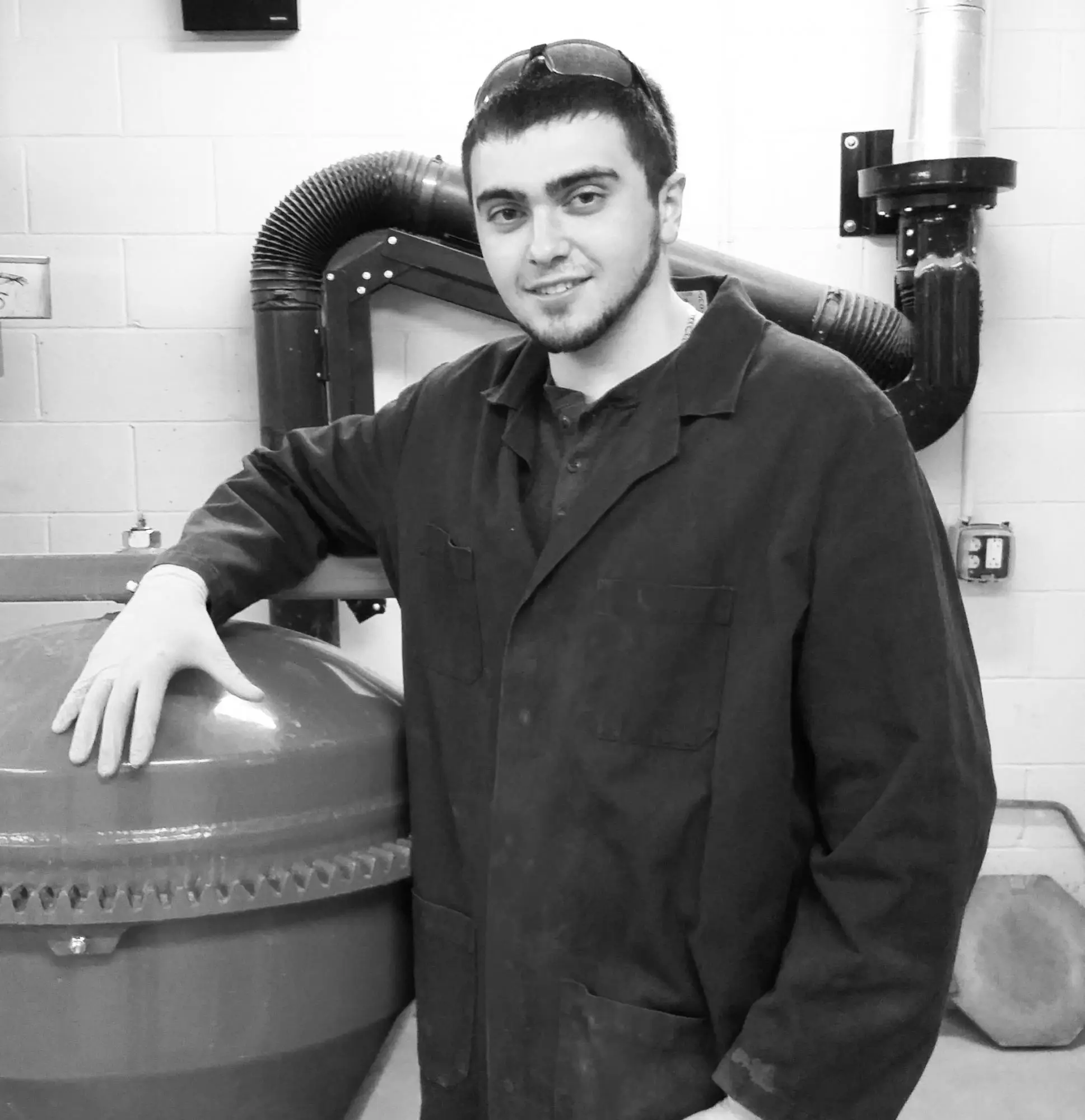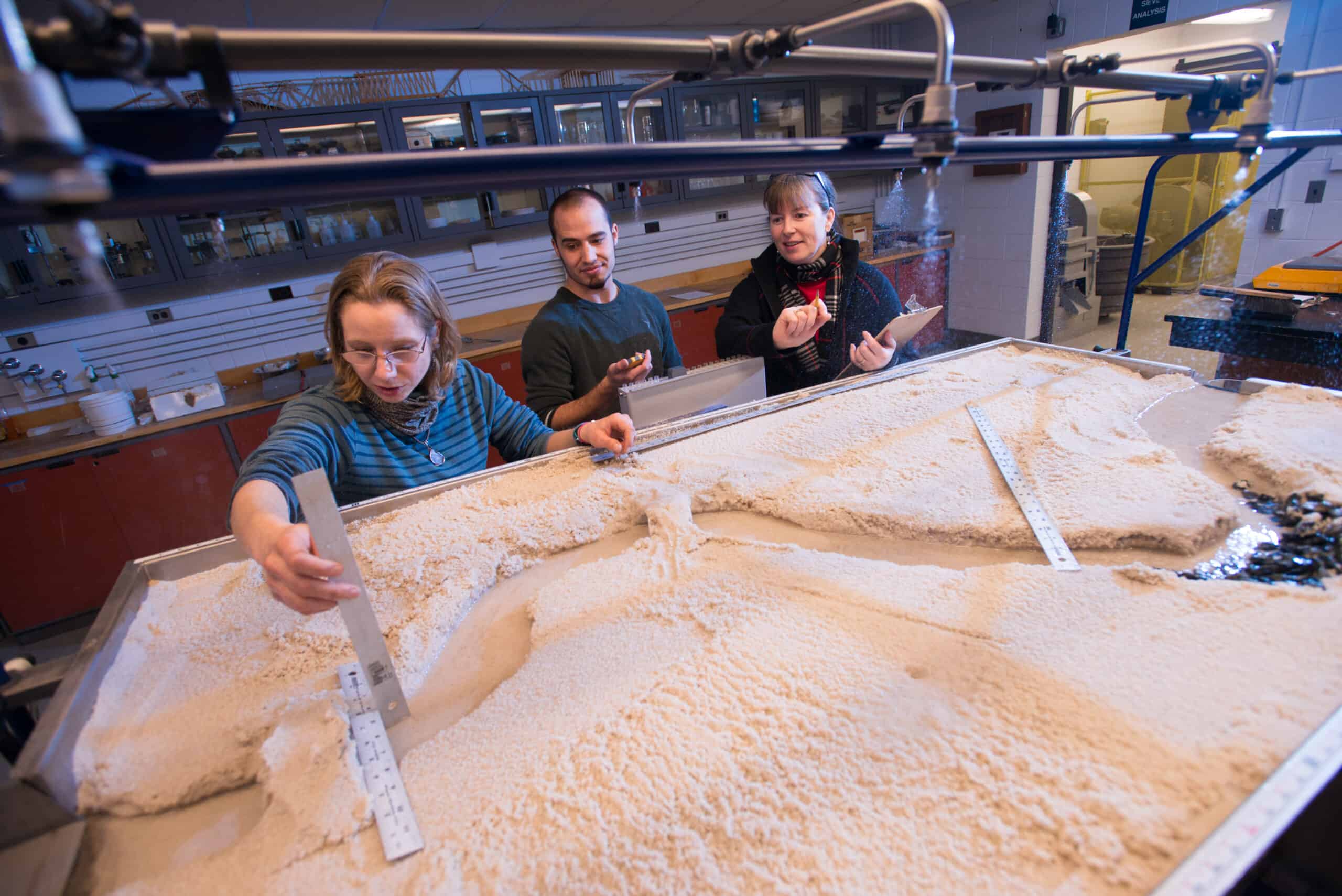Why Study Civil & Environmental Engineering Technology at Vermont State?
Making a Living While Making a Difference: As a professional in the civil engineering or environmental engineering professions, you’ll have the opportunity to change the world by designing and building vital infrastructure that helps solve human problems, protect the environment and make your community better. Our graduates choose between multiple job offers from local, regional, or national firms. The Return on Investment for this degree is regularly one of the highest in the State of Vermont and nationally.
Exceptional Placement Rate: Have confidence that your investment in your education will pay off. Our program has a 100% placement rate, meaning all our students find employment in civil or environmental engineering jobs within six months of graduating. Students can choose to work in the industry for summer employment, as many employers recruit our students in the hopes of retaining them after graduation.
Applied learning education: At Vermont State University you will learn the theory in the classroom and apply that theory in a laboratory setting. You’ll enter your career with the confidence that comes from this educational experience. Our well-equipped lab facilities include modern surveying instruments, a stream table to study water and soil dynamics, materials testing equipment, and computer workstations with industry-standard CAD software.
Easy Pathway to Further Training: Want to take your studies further? You can continue building your skills in Vermont State University’s Architectural Engineering Technology, Renewable Energy, or Construction Management bachelor’s degree programs without having to reapply. Plus, if you meet the GPA requirements for the bachelor’s degree, you’re guaranteed admission.
Request Information
Sample Courses
- Computer Applications (CADD)
- Hydraulics & Drainage
- Surveying
- Mechanic of Soils
- Environmental Engineering & Science
- Statics & Strength of Materials
- Civil & Environmental Design
Program Outcomes
Graduates of our program have multiple job offers to choose from leading to exciting careers in the civil and environmental engineering professions.
Recent Employers:
- State of Vermont
- EIV Technologies
- Green Mountain Engineering
- J.A. MacDonald
- Dufresne Group Engineering
- Greenman-Pederson, Inc.
- Trudell Consulting Engineers
- PIKE Industries Inc.
- H.A. Manosh Corporation
- Natural Resource Conservation Service
- SW Cole
- Omya, Inc.
Job Titles:
- Construction Inspector
- Project Manager
- Engineering Technician
- Environmental Inspector
- Staff Engineer
- CADD Technician
- Resident Engineer
- Quality Control Technician
- Estimator/Project Foreman
- Licensed Septic Designer
- Survey Crew Chief
- Licensed Surveyor
- Environmental Outreach
Student Stories

“My job includes surveying, analyzing plans and drawings, testing materials, and tracking and reporting progress of the project. My classes helped give me a foundation of understanding that I build on daily at the engineering consulting firm I work for.”
Bethany Bosch

“When I go to concrete plants, the operators are shocked by my role, being so young in the construction field. It has made it clear to me that my degree is like gold on a resume.”
Dustin Hill






